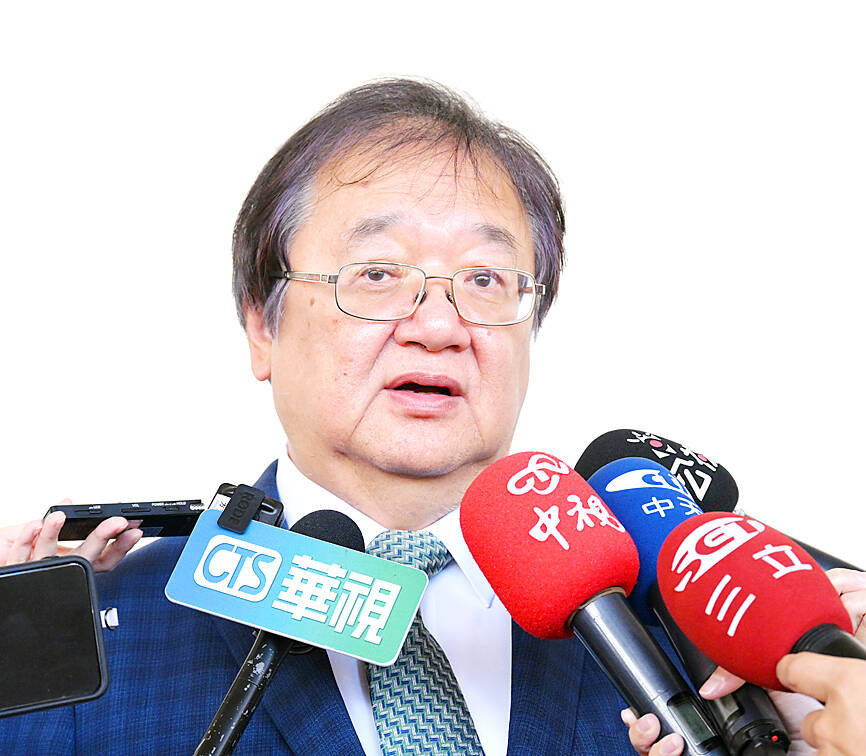Public mental healthcare improving, minister says

-
By Lee I-chia / Staff reporter
The Ministry of Health and Welfare yesterday said that government is working on bolstering mental healthcare, with the ratio of community mental health home visit case managers to patients improving from an average of 1:60 last year to 1:50 this year and is expected to further shrink to 1:40 next year.
Minister of Health and Welfare Chiu Tai-yuan (邱泰源) at a meeting of the legislature’s Social Welfare and Environmental Hygiene Committee to report on improving community mental healthcare services for people with mental illness.
The report was prompted by a case of a young man, who reportedly has a history of mental illness, suspected of attempting to sexually assault a girl under the age of 14 in broad daylight in Taoyuan on Oct. 27.

Photo: Fang Pin-chao, Taipei Times
The incident sparked public attention after parents of the child posted a video clip from a surveillance camera showing that their daughter had screamed for hel, as the young man grabbed her when she walked by him in the covered walkway. The girl was rescued by a passerby and taken to a police station.
Chinese Nationalist Party (KMT) Legislator Chen Ching-hui (陳菁徽) asked why the ministry had not responded to the incident, which involved an underaged victim and mental illness issues, as the perpetrator reportedly has a moderate intellectual disability.
Chiu said that people have a right to privacy about their mental health, and the public should not speculate about others’ conditions or stigmatize people with mental illness.
Chiu added that amendments to the Mental Health Act (精神衛生法) were promulgated in December last year and are to take effect on Dec. 14, with the aim of establishing more community mental health centers, diversifying community support resources, improving patient reporting system, enhancing prevention and crisis management mechanisms, and protecting patients’ rights.
Mental health care resources have been growing annually and, as of last month, there were 7,428 acute psychiatric beds and 13,180 chronic psychiatric beds, he said.
Through the second phase of a social safety net improvement program, the ministry provided local governments with subsidies to expand community mental health centers and personnel, he said.
As of last month, there were 52 centers across the nation — at least one in each city or county — and the number is expected to expand to 71 next year, he said.
Regarding care personnel at the centers, Department of Mental Health Deputy Director Cheng Sheu-shin (鄭淑心) said they include psychologists, nurses, psychological counselors, mental health social workers and case managers, with the aggregate number increasing from 594 in 2022 to 1,454 last month, and is expect to rise to 2,489 next year.
With the expansion, the ratio of mental health home visit case managers to patients dropped from an average of 1:60 last year to 1:50 this year, with the goal of further shrinking the ratio to 1:40 next year, she said.
Meanwhile, the ratio of social workers to patients stands at 1:28 and is expected to improve to 1:25 next year, she added.
Asked about the number of involuntary commitment beds, Cheng said the department estimates that demand in the next decade would be about 480 beds.
There are currently 102 beds, and another 183 are expected to become available by the end of next year, she said, adding that rehabilitative disposition facilities are also preparing to set up some beds.
Additional reporting by CNA
link





